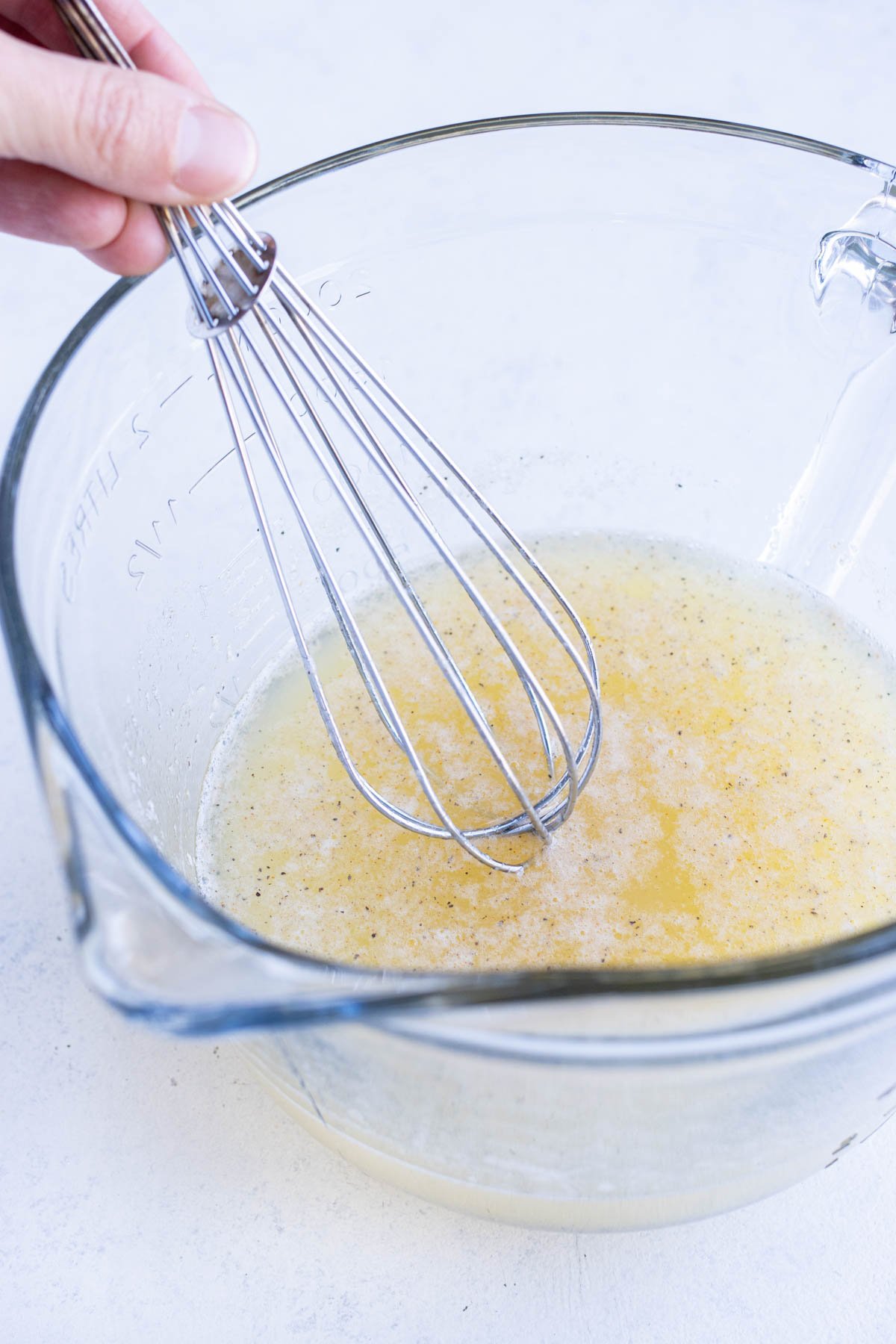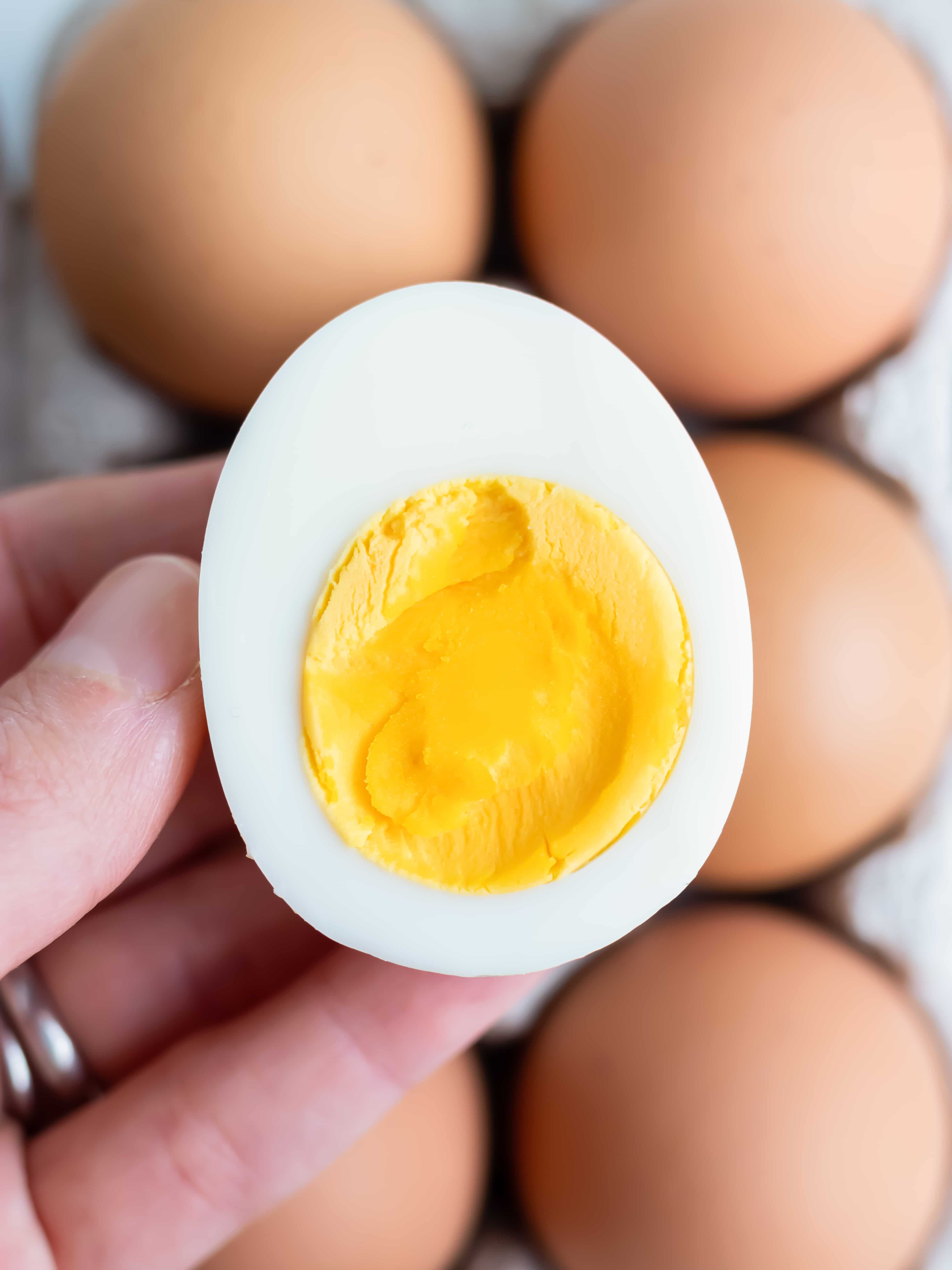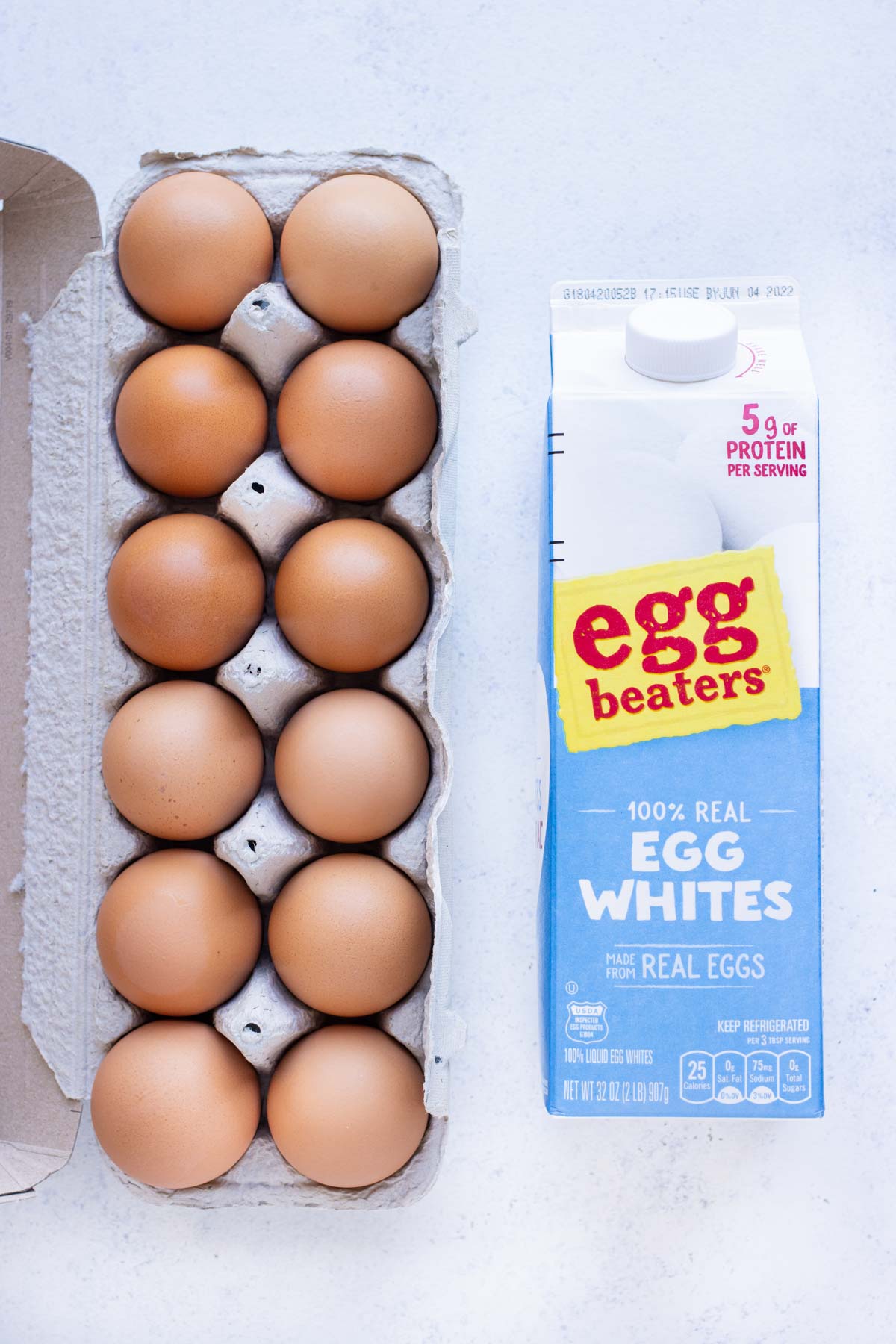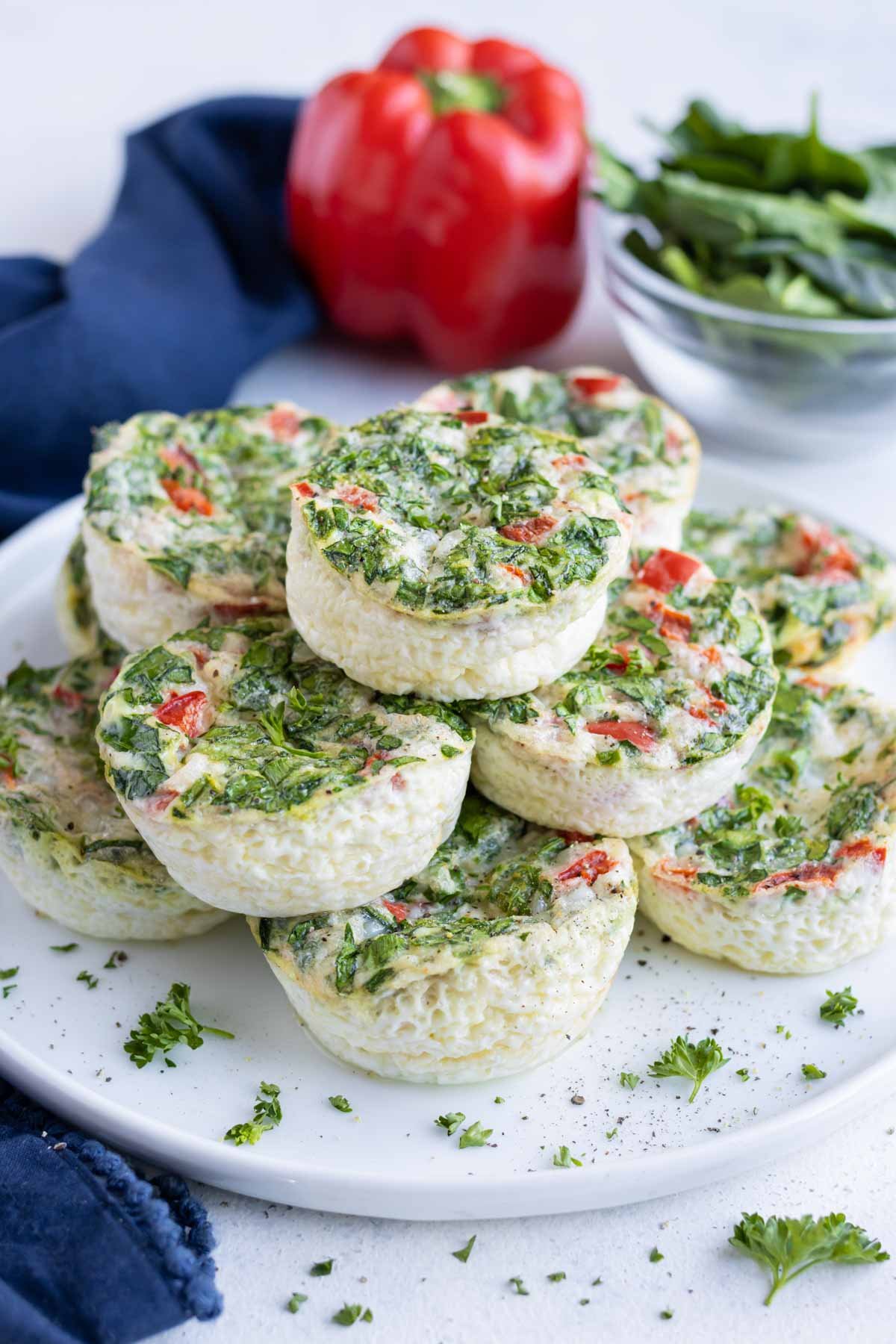Are egg whites healthy, and what are their health benefits? The short answer is yes—they’re full of protein and essential amino acids! After diving deep into their nutrition and proper preparation, you’ll be ready to whip up some eggs whites, and even the occasional whole egg and yolk, any day of the week.

What’s in an egg white?
Egg whites are full of water; they’re 90% water and 10% protein. When you look at the whole egg, the majority of the protein—with all nine essential amino acids—comes from the egg white. So yes, egg whites are healthy.
Nutritional Value of Egg Whites
Egg whites have a total of 17 calories but without the egg yolk, egg whites lose vitamin D, vitamin E, and vitamin K. Egg whites also have 0 grams of fat. Let’s take a look into what an egg white does have:
| Nutrition for One Egg White |
| 17 calories |
| 4 grams of protein |
| 55 milligrams of sodium |
| 1.3 micrograms of folate |
| 6.6 micrograms of selenium |
| 2.3 milligrams of calcium |
| 3.6 milligrams of magnesium |
| 4.9 milligrams of phosphorus |
| 53.8 milligrams of potassium |
| 0 milligrams of cholesterol |
As you can see, egg whites are a low-calorie food that offer essential nutrients, making them a great, healthy choice.

Health Benefits of Egg Whites
Protein
Egg whites have 4 grams of protein per egg, making them a solid source of high-quality protein that won’t add too many calories to your diet. Protein helps your body build, strengthen, and maintain muscle mass, especially as you age.
Low Calories
The bulk of calories in an egg is in the yolk. Eating just the white is a simple way to cut calories if you’re trying to reach a certain weight loss goal. With that being said, it’s not recommended to cut too many calories out of your daily diet because you’ll be left feeling hungry and nutrient-deficient, unable to achieve your desired results. Adding low calorie foods like vegetables is a great way to have a balanced-calorie meal without the yolks.
Heart Healthy
Egg whites don’t have dietary cholesterol, so, according to the American Heart Association, eating them can assist in reducing the risk of heart disease, strokes, cardiovascular disease, liver disease, and regulating blood pressure. Mixing egg whites with a whole large egg is a great way to to promote heart health because you have the extra protein with the whites and healthy fats with the whole egg.
How to Separate the Whites from the Yolks
Here are 4 ways you can easily separate the parts of an egg without breaking the yolks or getting egg shells mixed in:
- Crack the egg and pass the egg yolk from shell to shell, letting the egg white fall away.
- Crack the egg over a slotted spoon to let the egg white seep through.
- Crack the egg and use an empty plastic bottle to suck the yolk out of the white.
- Purchase liquid egg whites from grocery stores to eliminate any hassle!

Egg Whites vs. Whole Egg
Remember, egg yolks aren’t strictly bad for you. Yes, egg whites have more nutritional value when it comes to protein but they are a part of the egg as a whole. Each part’s benefits complement the other’s.
Whole eggs are one of the most nutrient-dense foods. Simply put, one large egg will give you 13 essential vitamins and 6 grams of protein, all within 70 calories. When adhering to a healthy diet, nutrient-dense foods are really important to consider, even over calorie counting, because eating these foods together will give you fewer cravings and help you feel fuller, longer.
While egg yolks contain healthy fats and about 210 milligrams of cholesterol, you’re still missing out on important micronutrients if you completely cut them out. These micronutrients include lutein and zeaxanthin that are vitamins essential to eye health. Choline is another nutrient that improves memory and performance. Additionally, folate is in yolks, which helps reduce tube defects in fetuses. Yolks are high in vitamin B and fat-soluble vitamins like vitamin A, D, and K.
Cooking with Egg Whites
The best way to have a balanced diet when it comes to eggs is to replace a single egg for 2 egg whites. The taste of egg whites alone is not usually the best, so incorporating at least one whole egg with them might help. As part of healthy eating, it helps to add other foods like vegetables, cheese, and seasonings to bulk up your meal.

Healthy Ways to Eat Egg Whites
Next time you’re wanting to add a great source of protein to your breakfast or brunch, use one of these recipes that incorporate egg whites. You’ll feel more energy in your body throughout your day!
Substituting 1 whole egg with 2 egg whites will do the trick with all of these recipes:














